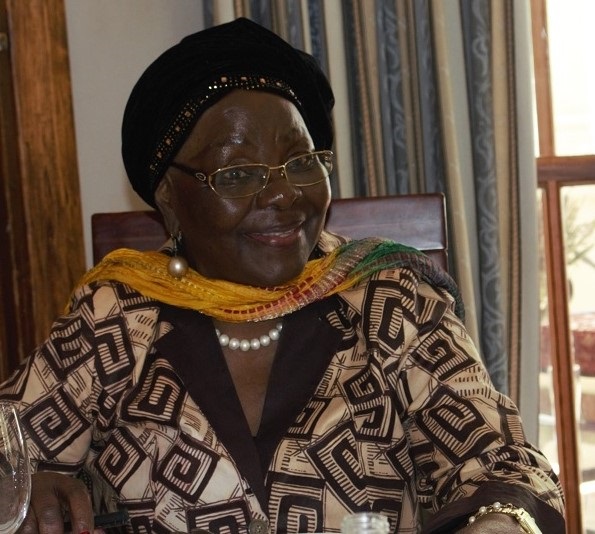ZIMBABWE’S MULTI-STAKEHOLDERS’ APPROACH TO ACHIEVE GENDER EQUALITY
Date:

Zimbabwe’s Minister of Women Affairs, Community, Small and Medium Enterprises Development Dr Sithembiso Nyoni . Photo: UN Women/ Itayi Usaiwevhu
Zimbabwe is moving towards increasing stakeholders’ commitment to gender equality following the launch of the implementation strategy for the national gender policy that will ensure the matching strides in achieving gender equality and women empowerment.
The implementation strategy recognizes that sustainable development must be inclusive, and people centred, benefiting and involving all people including all vulnerable groups. Speaking at an event to launch the strategy, Minister of Women Affairs, Community, Small and Medium Enterprises Development Dr Sithembiso Nyoni said the implementation strengthens coordination through the involvement of line ministries, UN agencies and civil society organizations.
“Zimbabwe has made strides to ensure gender equality through the constitution, but we would like to make further strides through implementation as we still have impunity when it comes to recognition of the need for gender equality”, said Dr Nyoni.
The plan of action defines systematic activities for each of the 10 thematic areas and draws together various organizations and ministries responsible for implementation.
"It is important that we start implementing and not just celebrating policies as the strategy translates the gender equality provisions of the National Gender Policy into workable actions”, said Dr Nyoni.
Sustainable development is guaranteed when women and girls are key partners in advancing progress. UN Women Deputy Country Representative, Caroline Nyamayemombe outlined that the implementation strategy is in line with goal 17 of the Sustainable Development Goals (SDG).
“The launch is important particularly in the light of the 2030 agenda, where we can use it to advocate for allocation of resources. There are a lot of aspirations articulated in policy documents which have failed to see the light of day due to lack of resources. We are hopeful that this document is critical in informing and placing priorities to advance gender equality in the country”, said UN Women Deputy Country Representative.
Goal 17 of the SDG calls on UN member states to “Strengthen the means of implementation and revitalize the global partnership for sustainable development”. Among some of the strategies include multi-stakeholder partnerships hence the Zimbabwe’s implementation strategy provides a coordination framework that ensures policy and institutional coherence.
The development of the strategy was a culmination of consultations that utilized the expertise within the UN System, government, civil society organizations, private sector, academia and development partners. Dr Nyoni acknowledged appreciation to stakeholders who supported the process.
“I would like to express my appreciation to all stakeholders, women’s organizations’ and UN agencies for making this implementation strategy a reality. I want to particularly thank UN Women for providing technical and financial support towards the development of the strategy”, she said.
The government of Zimbabwe revised and launched the National Gender Policy in July 2017 which also provides a framework for implementation of new provisions of the Constitution and subsequent laws and policies adopted. The policy is also aligned to the Sustainable Development Goals adopted in 2015.